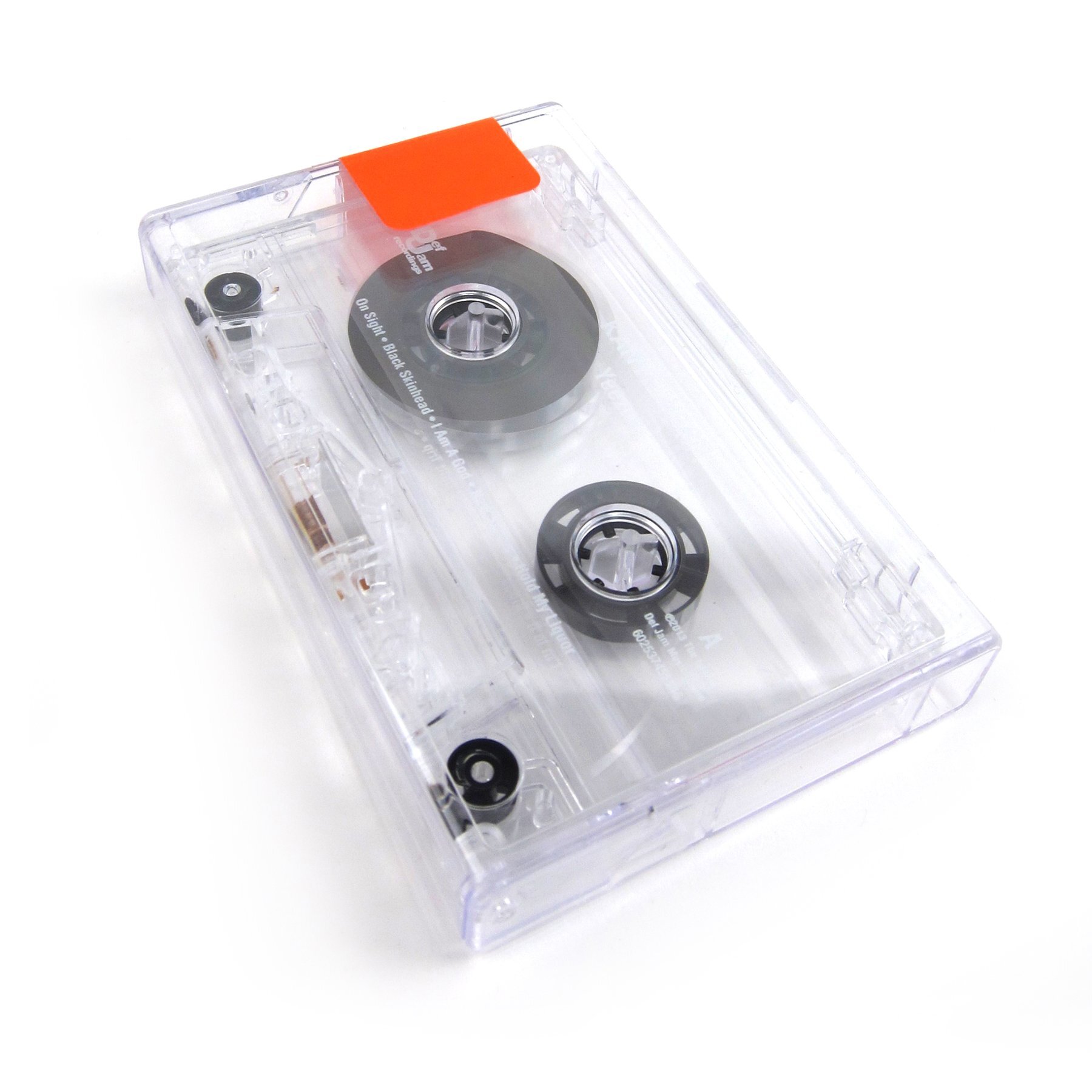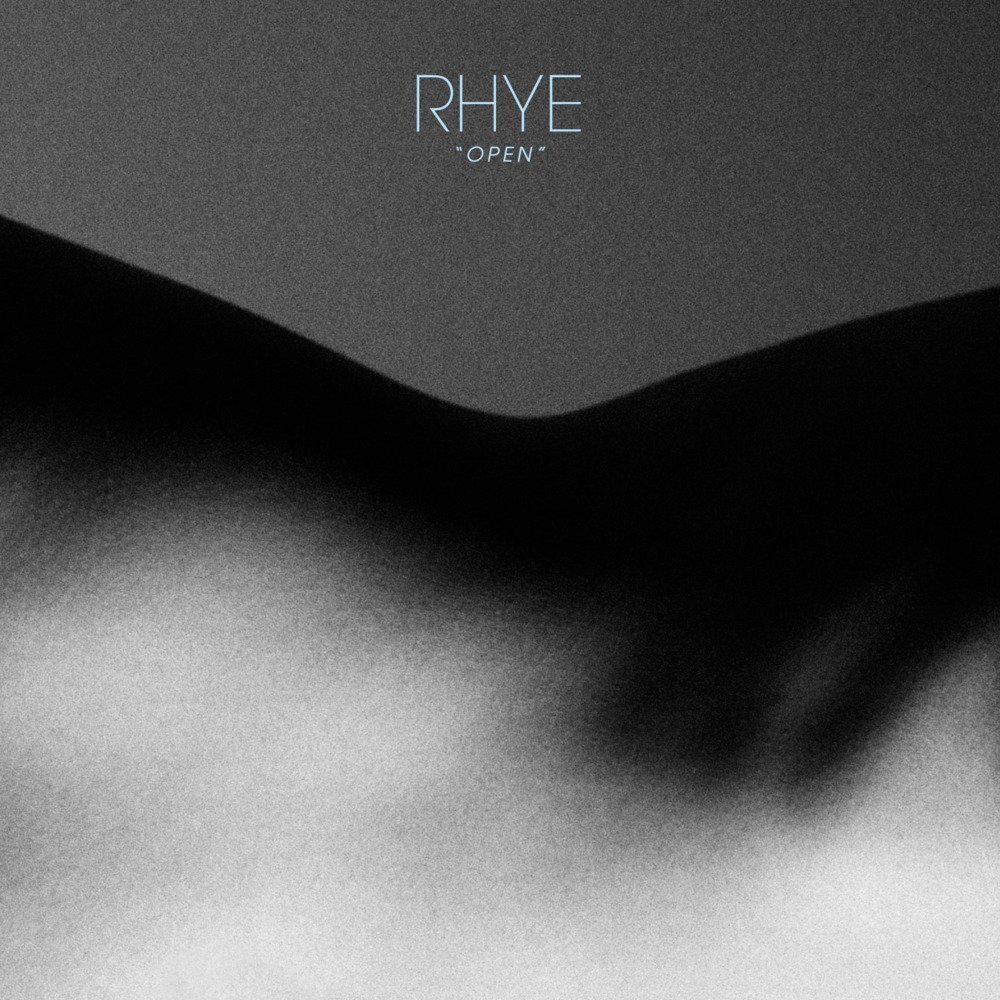“Nights” – Frank Ocean (Boys Don’t Cry, 2016)
It’s hard to talk about Frank Ocean without mentioning his almost non-existent media presence. No one knows where he is or what he’s doing. He has no dialogue with his fans. But everyone fucking loves the guy. It’s because the only relationship we have with Frank is through his art. There’s no other way to interact or gain information from him aside from listening to an album like Blond(e), which sounds like a series of stark yet deeply layered diary entries. This means that everyone has a unique and private relationship with Frank Ocean. We hear him remember, mourn, and reflect. And we listen.
The beat switch in “Nights” has garnered a legendary, mythical reputation on the internet. I can think of a few memes that attempt to visually replicate the feelings elicited by the sudden dissolution of those frantic guitar loops giving way to a crisp, understated trap beat. Evidently, no gif can give me that rush, because I keep coming back to “Nights”. It’s the perfect tipping point between Blond(e)’s two halves. It’s abrupt, but the song remains fully cohesive, echoing lyrical themes and melodies and recontextualizing them in the nocturnal second half.
We hear Frank reflect openly on a failed relationship, flipping quickly through memories of Hurricane Katrina, losing his home, transferring schools, and working night shifts. This stream-of-consciousness writing establishes a non-linear timeline, an aspect of the track which further reflects the day-night crossplay. Frank’s varied recollections are tied together through beautiful vocal runs and melodic flows that stick in your head like glue. Blond(e)’s pervasive nostalgia reaches a climax on “Nights”. Frank is always doing something special, something you can’t quite explain; it makes your ears hang on his every word. - BR
“Number 9” - Moon Hooch (Megaforce, 2013)
When people tell me they need something fast, catchy, and danceable for the gym or a party, I usually direct them to Moon Hooch. Now, this may be confusing at first, as Moon Hooch is a professionally-trained group of former conservatory students who spend the better part of their live shows playing tenor saxophone through orange plastic traffic cones. But we’re living in the future, my friends, and the genre-transcendent Brooklyn trio has brought cave music to celebrate. The opening track to their 2013 self-titled debut is somewhat elusively called “Number 9,” which calls to mind the Beatles but is essentially the opposite. To establish the mood and the setting, the band begins by paying homage to their subway station-busking roots and sampling the infamous New York underground robot lady voice: “Ladies and gentlemen, the next L-Train is now arriving on the Manhattan-bound track…” And then it’s off to the races.
With a mammoth-sized melodic sax hook, instantly recognizable and always smile-inducing, multi-instrumentalists Wenzl McGowen and Michael Wilbur use “Number 9” as an invitation to their exclusive nightclub. Once percussionist James Muschler’s chaotic live-drum dance beats come in, the track becomes reminiscent of something like Moby remixing TV On the Radio’s “I Was a Lover” with 300 horsepower, or LCD Soundsystem, a high school marching band, and the Hyperdub Records gang going H.A.M. on a Donna Summer 12”. Occasionally I have to remind myself that no guitar or bass was involved in the making of this music; the groove is simply overwhelming. “Number 9” is primitive and masterful, a modern classic of experimental dance music and Jazz fusion and brasshouse that infectiously encouraged a return to the use of live instruments in the club. If Moon Hooch wants to retreat to the cave to play their tunes, we’re lucky to join them. - HM
Listen to our interview
“Numbers on the Board” - Pusha-T (Def Jam, 2013)
“If You Know You Know” was a shoutout to the Day Oners, the fans and friends there since before Clipse was reinventing the wheel. “Numbers on the Board” is the egotistical nucleus of that celebration, swiveling back to the center of it all: Pusha-T himself. It flows through Jordan references without feeling pretentious or reaching. Pusha could have stuffed this grimy beat with Ali, Greztky, Messi, Aaron and felt like he was being too humble. “How can you relate when you ain’t never been great?” he slurs triumphantly, just seconds after he reconstitutes a legendary Jay-Z sample, just as that icon was fading into his billions, more business than man. Pusha, meanwhile, was as gritty as ever, cementing greatness in under three minutes. One of the core tenants of Hip-hop is myth making, weaving legends and heroes out of thin air. Pusha never had to make “Numbers on the Board” to be stitched into the tapestry, but this was his victory lap around the pantheon. - NS
“On Sight” - Kanye West (Def Jam, 2013)
After rewriting people’s expectations of an art-rap album in the 2010s with My Beautiful Dark Twisted Fantasy, Kanye West dismantles that hard-won image of creative opulence within the first few seconds of “On Sight,” the opening track to Yeezus. It opens with one disorienting synth gurgle that’s better suited for an Autechre album. However, the production’s acidic levels has no match for the real monster at the center. Kanye bum rushes the track as the most sacrilegious beast: he commits adultery as a form of revenge against, at least in the context during its initial release, the rich white men who barred him from the same spaces and resources of power. Immediately after he makes his threats, he gives the most *Kanye shrug* explanation for his maddening impulses: he stops the beat to abruptly include a choir to sing, “he’ll give us what we need, it may not be what we want.” Remove the gossip of his frustrations being blackballed from the fashion industry, and it’s the beginning of him peeling back the mask behind the disconcerted psyche of a man -- a subject he would further give shape to and nakedly explore through his three subsequent albums. “On Sight” is an ugly thing, and parts of its crudeness feels trolling in the way Kanye’s corny punchlines can often be, but its warped ugliness captures the very abstraction of the self he’s at war with. - RM
“Open” - Rhye (Polydor, 2013)
The first time I heard Mike Milosh’s now-beloved androgynous voice was in 2012 when he uploaded a video to YouTube simply titled “Open, in the living room.” It consisted of himself and his then-wife, Alexa Nikolas, dimly-lit and out-of-focus, with a slight emphasis on Nikolas’ face. The song, “Open,” was played stripped-down on a piano and sung with quiet intensity by Milosh. I remember thinking to myself, “This is the sexiest fucking thing I’ve ever heard.” Later, when I heard the studio version, I was incredulous: it was even sexier. With strings, horns, guitar, and ultra-lush production, “Open” soars. All these years later it’s still so damn romantic. “I want to make this play / Oh, I know you’re faded / But stay, don’t close your hands,” Milosh pleads with the object of his desire. “Caught in this pool held in your eyes / Caught like a fool without a line.” He’s desperate, exasperated, stumbling over himself to express his love. Yet, by the end, we know he’s succeeded in the endeavor. How could the recipient of this gorgeous, floral, winsome piece possibly say no? “Stay open,” he begs. We can’t refuse, 7 years later. - HM
“22 (OVER S∞∞N)” - Bon Iver (Jagjaguwar, 2016)
“22,” the intro track to 22, A Million, makes it immediately apparent that Bon Iver have made a significant departure from their acoustic roots. Short, heavily processed loops of Justin Vernon’s voice serve as the rickety skeleton of a song which seems like it may fall apart at any moment. The audio sputters like a plug is loose. Bits of samples cut in and out between Vernon’s harmonized vocals, which reveal feelings of anxiety and personal struggle. These lyrical concepts permeate throughout the entire album, strengthened by a constantly shifting sonic palette. You’d expect all this to come off as annoying, but somehow these muddled, digital elements meld to create something undeniably organic and tangible. And can we talk about that sax solo? Holy shit.
Perhaps this stylistic change was inevitable for a band which has grown far beyond its beginnings as the project of one lonely man with pneumonia. Maybe the digitization of the music is a reflection of our increasing dependence on technology. Whatever the case, the new Bon Iver sound hasn’t compromised the humanity of the music, and I couldn’t be happier. - BR
“Palace” - Clams Casino (Self-Released, 2012)
Hip-hop that sounds absolutely enormous. This instrumental (and many others produced by cloud rap innovator Clams Casino) served as walkout songs for a generation of rappers. (See: Lil B, A$AP Rocky, Mac Miller, etc.) - BR
“Pillowtalk” - Zayn and Tyler, the Creator (Self-Released, 2016)
Zayn's "Pillowtalk," his opening salvo in his post-One Direction career, was one of the more forgettable chart-toppers of this decade, but it's made redeemable by Tyler, the Creator's angular, funky, fuzz-guitar revamp. With dirt-cheap boom-clap drums, Casio keyboard plinks, and a fearless, freaky energy that is so undeniably Tyler, Zayn's anthem of bedroom conquests feels far sexier here -- tussling about in Tyler's sonic bedsheets -- than in the drab, icy synth tones of the original. After all: who wants to have sex with their socks on? - ES
“Power User” - Olga Bell (One Little Indian, 2016)
The dancefloor, the club, the mosh-pit are all sacred spaces to those who inhabit them. Transgressing on these places of musical worship isn’t something to be taken lightly. So, whether it be the sneering wallflower, dance history mansplainer or something much, much worse, take heed. Olga Bell has the perfect, playful middle finger for all these citizens of terribleness.
“Power User,” a child of Snoop Dogg G-Funk, Beastie Boys self-confidence and her own, whacked out indie-pop, is about as self-assured as a dance track can get. Clanking cowbells, regal flutes and wailing synths all usher in Bell’s cold coo on before launching into the ecstatic chorus. And that’s even ignoring the bonkers bridge, with a tag team of pitch-shifted Bells invading like a couple of dancefloor gremlins.
All of this is a jittery kiss-off to the titular creep who’s “got all the answers” but is also “dancin' on your own.” That’s after Bell delivers the brutal description that he’s “looking a little like a punchline, buddy.” So for every ruined night out, awkward bar chat or general vibe of lurkerness, just remember, Bell’s got your back and wants you to lose yourself. - NS
Listen to our interview
“Private Show” – Black Marble (Sacred Bones, 2019)
The War on Drugs might have been the finest Springsteen acolytes of the 2010s, but goddamn if the ever rushing, unsure euphoria of “Private Show” wasn’t Darkness on the Edge of Town reforged as a synth-pop odyssey. Chris Stewart programs an army of synths and machines to march in thrilling lockstep, always sounding like it’s two seconds away from breaking into an untenable tempo. “Everybody’s on their way to heaven / Everybody’s gotta die to get there,” Stewart intones as the song unfolds, leading to a stadium breaking chorus. On the second go round, he turns inwards, changing from reflections on humanity to his own desires, admitting “I’d rather not sleep / Because I know I’ll just see you in my dreams.” Break into tears, break into dance, or, preferably, both. - NS









